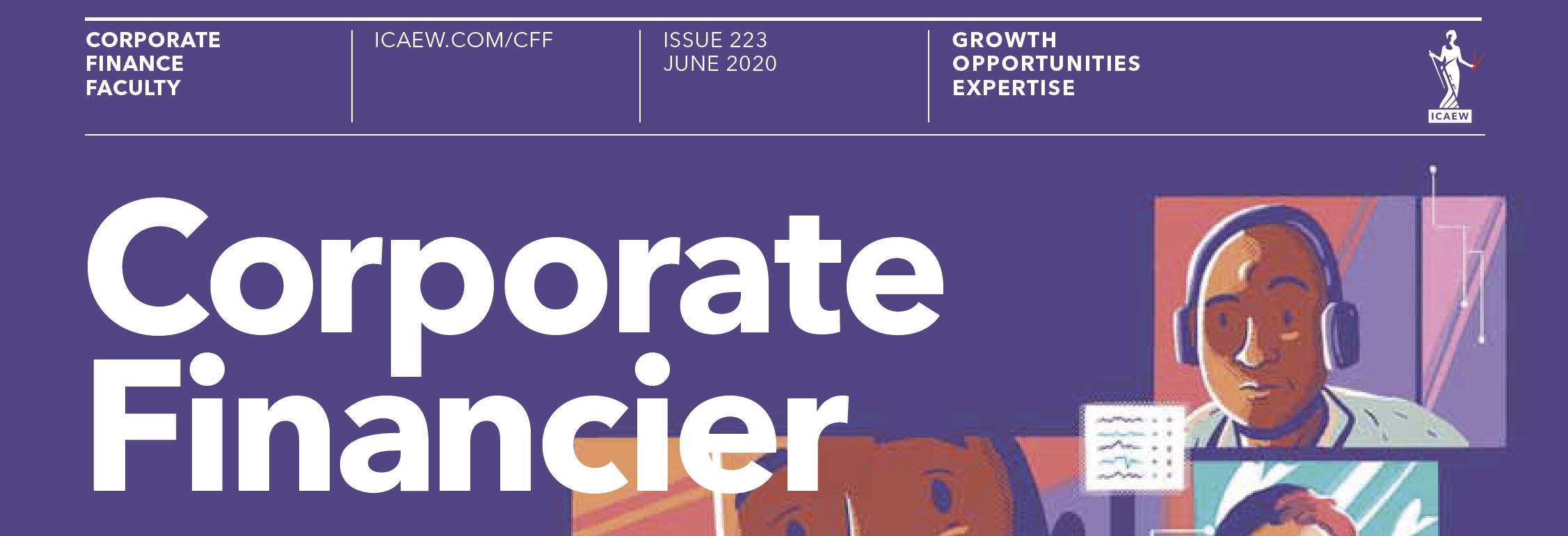In ICAEW's latest 'Corporate Financier', August Equity partners Katie Beck and Mickey Patel discuss the impact of Covid-19 on both the portfolio and M&A.
Find the full article in ICAEW’s latest Corporate Financier here.
March proved to be a tipping point in the Covid-19 pandemic. By 24 March, the UK had joined Italy and other major European countries in enforcing lockdown measures. By May, 76% of the highest income earners (those earning £50,000 and above) were working from home. Anecdotally, advisers and investors were almost all in that group. So what has happened to M&A deals during the lockdown?
In the first instance, all deals were mothballed or paused, unless very close to completion and not directly impacted by Covid-19. All eyes turned to their respective portfolios. Portfolio companies needed to be in as strong a place as possible to deal with the impact of the crisis. During this period it became apparent that some sectors were less affected than others, with some businesses even seeing an uptick in business as a result of the crisis – IT services and communications, for instance.
August Equity has a portfolio of businesses in healthcare, veterinary services, technology, business services and education. “We don’t invest in consumer businesses,” says Katie Beck, portfolio partner at August. “The initial focus was on doing everything to safeguard employees and to ensure there would be business continuity.” “Our management teams tend to be quite self-sufficient,” she says. “But, as we do consistently as a matter of best practice, it was a case of working with them to make sure contingency plans were up to date for this specific situation. We updated them pre-lockdown in anticipation of what things might look like. Then the focus moved onto scenario planning – what does it look like if a certain scenario happens, and how do we deal with it?”
The support that businesses might need during lockdown was assessed, remote working plans put in place and cash flows worked through with management. Relevant information was shared across portfolio businesses. Specific key performance indicator reporting for the situations that businesses were in was put in place. The next stage was to look at what issues would need to be addressed as the UK moves out of lockdown. “Contingency plans are largely done by the management teams , but we feed into them and we play a role in the reviewal process,” says Beck. “At the beginning we were doing daily update emails summarising key issues because there was a flood of information. It was too much with everything else that the management teams had to deal with. There was information on government guidance, and government schemes that were being introduced and information from advisers. We were consolidating that into the elements of best practice. That has been eased to bi-weekly updates.” Webinars were held with advisers, which allowed for sharing of thinking across the portfolio and gave teams the opportunity to request that
management ask direct questions of banks and lenders. Beck says most of August’s businesses have not suffered any significant impact on revenue to date and they do not expect to either, but there is a range of issues across the portfolio to be dealt with.
Some August Equity-backed businesses have continued to see demand increase. Berkeley Home Health, which provides homecare services to elderly and complex care clients, has seen an increase in demand and Orbis Education & Care, which provides services for young people with emotional and behavioural disorders, has continued to see referrals. Dental Partners and Sonnet Care Homes, also in its portfolio, will have had different operational challenges, because of the direct impact of coronavirus. Air IT has unsurprisingly seen demand for its IT and communications services go up. “We’re engaged proactively with lenders, looking at covenant holidays,” says Beck. “But that is more contingency rather than, for the most part, an urgent need.” However, she does expect there to be an extended period of greater focus on people and greater management of the portfolio in future.
Now that there is more clarity on the impact of Covid-19 and lockdown, deals are slowly and tentively starting to come back to life. However, given increased buyer caution, pandemic-related risk assessments and the extra time likely required to assess opportunities, the entire deal lifecycle is expected to extend. With processes only able to be re-kindled with the essential assistance of technology.
Mickey Patel, investment team partner at August Equity, says that having paused to take stock and assist where required on the firm’s portfolio, they began speaking to advisers and analysts and reconnecting with businesses they’d been speaking to at the start of the year. “We’re focused on completing those deals that have shown resilience and are likely to return to a normalised level of earnings quickly post Covid-19,” he says. “While performance in most businesses has wavered, the essential services we invest in, such as cloud services, have held up well and are likely to have pent-up demand when lockdown measures are relaxed. The stock market has declined considerably from the start of the year and debt providers are likely to become more conservative on their lending – both of which will have an impact on valuations. And given the impact of the lockdown on sales activity, it is likely that more deals will be done with some sort of deferred consideration or consideration tied to an earnout.”
